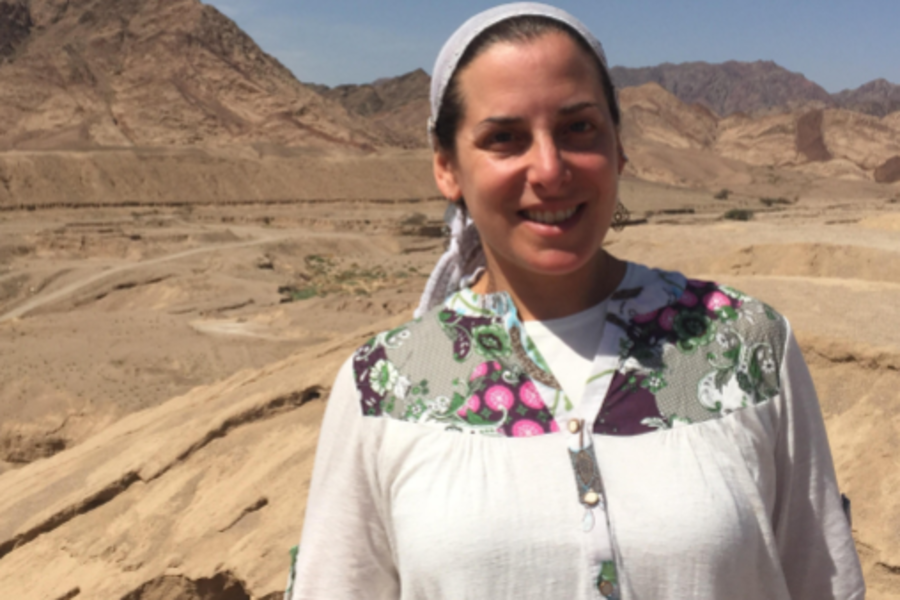Titles for women are even more complicated
September 10, 2017
MS: Ms Atara Segal spent last year in Israel completing the first year of a two-year program to become a Yoetzet Halacha.
Women’s titles are problematic at Modern Orthodox institutions — not just at Shalhevet — because women’s leadership in Orthodox Judaism is still new and controversial.
Reform and Conservative Judaism have ordained women rabbis for many years. But Orthodoxy has held to a tradition that dates from times when few women had the time or means to study as rigorously as men.
In recent decades, Orthodox women have increasingly studied the same material as men, and the Orthodox Union, in statements earlier this year, said there was a need to study the matter.
In its February statement prohibiting Orthodox congregations from hiring women to serve as clergy, it said titles should be considered.
“Though such titles could not – and should not – connote ordination or rabbinic function, the Rabbinic Panel has made clear that words – and titles – matter,” the statement said. “In short, the dignity accorded such positions must be commensurate with the importance we place on them.”
Ms. Atara Segal, who spent last year in lsrael for the first out of two years of her Yoetzet Halacha program at Nishmat, said she would still be called Ms. when she finishes.
The position of Yoetzet Halacha is recognized by virtually all Orthodox institutions. But it isn’t used as an honorific, or courtesy title, and that’s deliberate, according to Rabbanit Chana Henkin, co-founder of the program with her husband, Rabbi David Henkin.
Rabbanit Henkin says on Nishmat’s website that the program tried to steer clear of the controversy to gain the widest possible acceptance for those she trained, who assist women with observance of taharat hamishpacha, laws pertaining to women’s health and marital intimacy.
According to Nishmat, there have been more than 200,000 questions asked worldwide on the Yoetzet Halacha telephone hotline, and Yoatzot have been employed by communities across Israel, North America and the Great Britain.
“Yoatzot Halacha have given women a dignified and much-needed halachic address for intimate issues…,” Rabbanit Henkin said. “I strongly believe that our decision to avoid fractious titles, while maintaining a sense of what the community is prepared to accept, has enabled us to build a new consensus around the reality of women halachic scholars.”
In the U.S., a rabbanit is usually a woman whom received s’micha from Yeshivat Maharat, a four-year program which educates Orthodox women for clergy roles in the same way a rabbinical school does.
Recognizing the novelty of the concept, the Riverdale, N.Y., yeshiva invented a new Hebrew word as a title — “Maharat” an anagram standing for the Hebrew words manhiga, hilchanit, Toranit, which means spiritual leader, teacher of Torah, expert in halacha.
“By providing a credentialed pathway for women to serve as spiritual and halakhic guides, we increase the community’s ability to attract the best and brightest into the ranks of its leadership,” it says on its website.
It does not specify an appropriate title.
“Graduates of Yeshvat Maharat are conferred as toreh toreh – a [decision maker] of Jewish law. We encourage our graduates to use the professional title most appropriate to them, I consultation with the communities they serve.”
Rabbanit Alissa Thomas-Newborn, a graduate of Yeshivat Maharat, began her tenure as the junior clergy member at Los Angeles’ Bnai David-Judea Congregation two years ago, with the title as Morateinu. But she now is being called Rabbbanit.
“What was most important to me was that it would be the right fit for our community and something that would also be a part of the greater community,” Rabbanit Thomas-Newborn told the Boiling Point last year.
“A variety of titles are being used throughout the world at this point. I think it depends on the community you’re in and what’s the right fit for both the person with the title and the community that person’s working in or the institution that person is working in.”
Shalhevet Principal Dr. Noam Weissman acknowledged that the subject of what to call highly educated women is difficult.
“It is a real challenge that the Modern Orthodox community should be thinking deeply about,” said Dr. Weissman, “and the Modern Orthodox community has started to think deeply about it.”
